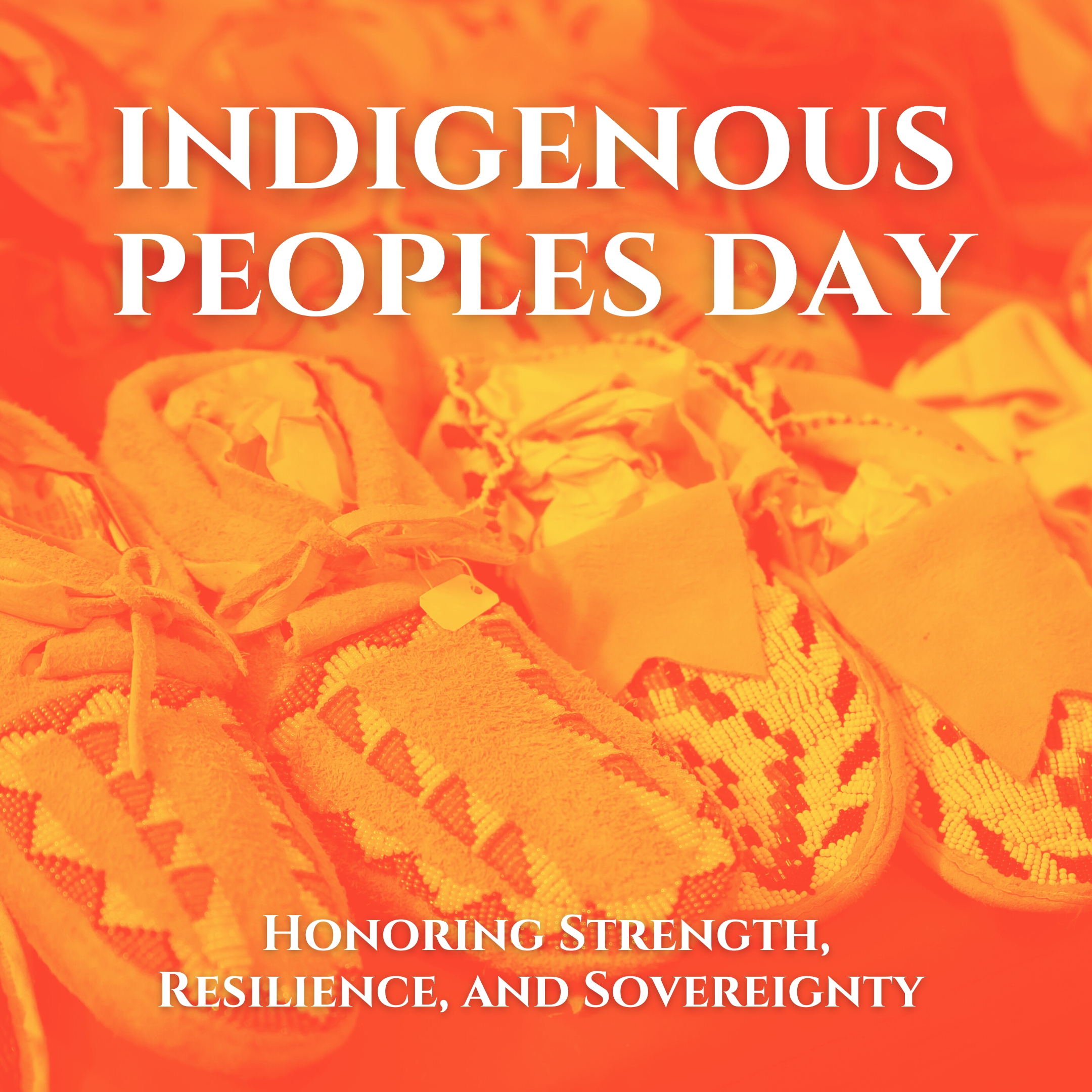featured_seasonal_and_giftsYour Monthly Gift, Their Endless Possibilities. Join our Monthly Giving Circle and make your impact today!

Today, we honor the strength, resilience, and enduring contributions of Indigenous Peoples. At Native American Connections, our work is rooted in Indigenous values and community. As we reflect on this day, we reaffirm our commitment to supporting Indigenous youth, families, and protecting our future.
Today, we honor and celebrate the cultures, histories, and enduring contributions of Indigenous Peoples, whose presence and leadership continue to shape and strengthen our communities. At Native American Connections (NAC), our mission is deeply rooted in traditional Native American culture. We are guided by the values long upheld in Indigenous communities and have witnessed the transformative power of these teachings in healing, community, and service. On this Indigenous Peoples’ Day, we share our gratitude for Indigenous presence, leadership, and wisdom.
This year’s Indigenous Peoples Day holds special meaning as it follows the conclusion of our 41st Annual NAC Parade, an integral part of Arizona’s Native American Recognition Days. This gathering brought together Native organizations, culture bearers, youth leaders, and partners to celebrate Native traditions and honor the resilience of Indigenous Peoples across generations. The theme of this year’s parade, “The Future is Ours,” placed a spotlight on youth empowerment and engagement. Across Indian Country, young Native leaders are drawing strength from ancestral knowledge while envisioning and shaping a more just, vibrant future. They are artists, healers, advocates, organizers, land stewards, and changemakers. Today, we uplift both the legacy of Indigenous Peoples and the new generation rising with strength, pride, and vision.
Indigenous Peoples Day is also a time of reflection. We acknowledge the painful legacy of colonization, displacement, broken treaties, and intergenerational trauma, realities that continue to affect Native communities today and contribute to ongoing disparities in health, housing, education, and opportunity. In the face of these historic and continuing injustices, Indigenous Peoples have shown extraordinary resilience, wisdom, and strength. Their survival and ongoing leadership are testaments to the power of culture, community, and sovereignty.
At NAC, we believe that honoring Indigenous Peoples Day must include action. We encourage our community to commit to the advancement of Indigenous sovereignty, cultural revitalization, and equity. As we continue to build pathways to housing, health, and community wellness, we remain focused on creating spaces where Indigenous youth and families can thrive – where culture is celebrated, leadership is nurtured, and Indigenous voices are heard.
We thank our partners and Tribal Nations who have shared their strength, teachings, and trust us to care for their Tribal members and citizens. We are honored to walk alongside you in solidarity and service.
Our traditions are the foundation of our organization - explore, learn, and utilize resources available for all.

Get the support you need with health, housing, and community services available at Native American Connections.

Your support changes lives and builds healthy communities. Find ways to get involved.

A "chronically homeless" individual is defined to mean a homeless individual with a disability who lives either in a place not meant for human habitation, a safe haven, or in an emergency shelter or in an institutional care facility if the individual has been living in the facility for fewer than ninety (90) days and had been living in a place not meant for human habitation, a safe haven or in an emergency shelter immediately before entering the institutional care facility. In order to meet the ‘‘chronically homeless’’ definition, the individual also must have been living as described above continuously for at least twelve (12) months or on at least four (4) separate occasions in the last three (3) years, where the combined occasions total a length of time of at least twelve (12) months. Each period separating the occasions must include at least seven (7) nights of living in a situation other than a place not meant for human habitation, in an emergency shelter or in a safe haven.
Federal nondiscrimination laws define a person with a disability to include any (1) individual with a physical or mental impairment that substantially limits one or more major life activities; (2) individual with a record of such impairment; or (3) individual who is regarded as having such an impairment. In general, a physical or mental impairment includes, but is not limited to, examples of conditions such as orthopedic, visual, speech and hearing impairments, cerebral palsy, autism, epilepsy, muscular dystrophy, multiple sclerosis, cancer, heart disease, diabetes, Human Immunodeficiency Virus (HIV), developmental disabilities, mental illness, drug addiction, and alcoholism.